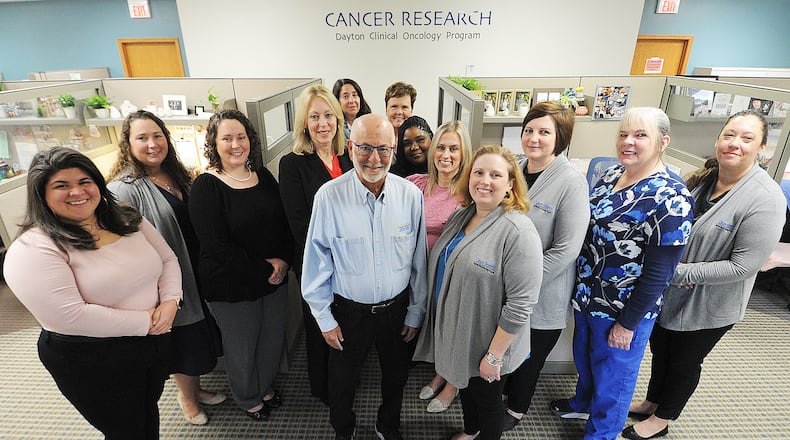That exposure has resulted in decades of working for and with cancer patients, most recently at the Dayton Clinical Oncology Program, where she stepped down in November after serving as its president and chief executive officer since 2014.
Her achievements there earned her the 2022 Dorothy Coleman Outstanding Administrator Award, given out annually by the National Cancer Institute’s Community Oncology Research Program.
“Just for her to be recognized by the National Cancer Institute was something that was unbelievable. I was so proud,” said Michelle Kinney, who nominated Ontko as a Dayton Daily News Community Gem on behalf of the Dayton NCORP staff.
The organization offers NCI-funded clinical trials to cancer patients in the Miami Valley, Cincinnati, Findlay and Youngstown areas, in addition to Northern Kentucky and Eastern Indiana.
Kinney, who was associate director when Ontko received the award and succeeded Ontko as the head of the program, knows that she has big shoes to fill. Ontko’s leadership guided the small nonprofit through several challenges, such as a relocation and the COVID-19 pandemic. What’s more, the way she has cared for the patients, the trials and the organization’s team has been an inspiration.
Ontko, of Centerville, took on a new role as its operations director in order to spend more time with her first grandchild, who was born last fall.
“She doesn’t like to be in the spotlight, but she’s done amazing work,” said Kinney, of Loveland.
The organization’s network of physicians and hospitals have access to the trials for their patients, and Kinney said that more than 8,300 participants have taken part in about 1,500 trials since 1983. These national trials research treatment to prevention to symptoms and more.
Sometimes only a couple of patients in the service area are eligible for a trial, but that can make a difference not only for patients with, for example, a rare disease or few other options, but also for the national research being studied, said Ontko, 59.
“We really believe that these clinical trials are so valuable for the patients in our community,” she said.
Having a local base for trials means that patients don’t have to travel to Columbus, Cleveland or elsewhere to participate, allowing them to stay close to their families and physician, and it relieves some of their financial burden, Ontko said. Past trials have shaped current cancer treatments, and the trials of today will help cancer patients in the future.
Last year’s award presentation was a surprise to Ontko, but it was a meaningful capstone to a career serving cancer patients. She credited the teamwork between the organization and medical personnel for making these trials available to so many.
“My heart and soul have been in this for so long,” Ontko said. “I just really, really believe in the importance of it.”
About the Author
